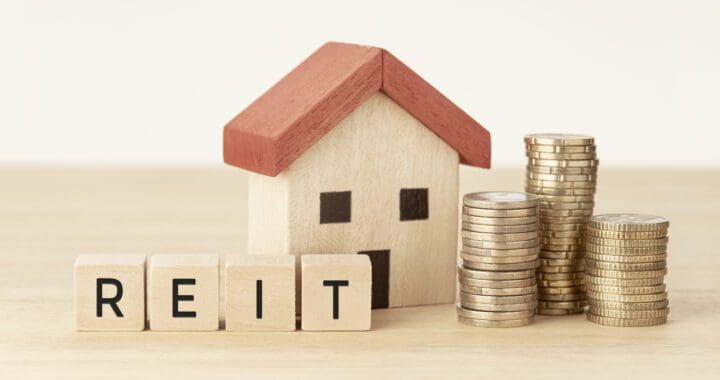Real Estate Investing
The road to financial independence is paved with savvy investments. And one of the most powerful tools for getting there faster is real estate investing.
Investing in rental properties and other real estate types can create passive income streams and significant tax advantages. This can accelerate your journey to early retirement.
But real estate investing doesn’t come without risk. Success requires the right property, financing, taxes, and long-term strategy.
Let’s explore intelligent ways to use real estate to invest your way to an earlier FIRE date.
Why Real Estate for Early Retirement?
Among all asset classes, real estate offers a compelling mix of benefits for FIRE:
– Generates cash flow – Rental income creates steady passive revenue to fund living expenses
– Appreciates over time – Real estate values historically rise, providing growing equity
– Tax advantages – Depreciation and 1031 exchanges can defer and lower taxes
– Leverage with debt – Banks will fund up to 80% of property value through mortgages
– Hedge against inflation – Home values tend to rise with inflation, protecting purchasing power
– Forced savings – Principal paydown builds equity that can be tapped later
When purchased wisely, rental properties and other real estate provide the holy grail of assets that produce ongoing income. This extra cash flow powers early retirement dreams.

Best Practices for FIRE Real Estate Investing
Here are some top tips for effectively utilizing real estate on your path to financial independence:
– Purchase locally – Manage properties easily by buying in your current market
– Study 1-4 unit buildings – Live in one unit and generate rental income from the others
– Ensure positive cash flow – Focus on cash flow, not just appreciation for passive income
– Run the numbers – Crunch rental property calculations to quantify returns
– Build a team – Have a trusted real estate agent, lender, lawyer, and property manager
– Standardize maintenance – Develop efficient processes to handle maintenance and repairs
– Purchase in up-and-coming areas – Growth potential boosts future returns
– Utilize tax benefits – Write off all applicable expenses depreciation. Additionally, check the Tax benefits you can utilize in your own country. Consult with a Tax advisor.
With the proper property selection and management system, rental income can nicely supplement retirement living.
Risks of Real Estate Investing
While enticing, real estate investing doesn’t come without risks. Here are some to be aware of:
– Illiquid assets – Real estate can’t be quickly bought and sold like stocks
– Concentration risk – Too much tied up in one volatile asset class
– High debt levels – Excess leverage is dangerous with interest rate and cash flow uncertainty
– Lack of diversification – Problems if all holdings are in one city or property type
– Bad tenants – Non-payment of rent, property damage, legal issues
– Rising expenses – Maintenance, insurance, taxes, HOA fees add up
– Natural disasters – Floods, fires, storms can destroy properties
Conservative financing, tenant vetting, legal protections, insurance, and geographic diversity help mitigate these risks.

Alternatives to Direct Property Ownership
Directly buying rental properties may not suit every investor. Here are some other real estate options for FIRE:
– REITs – Real Estate Investment Trusts provide diversified exposure by owning properties and distributing income
– Real estate crowdfunding – Platforms like Fundrise pool money for income-generating commercial properties
– House hacking – Buying a multi-family to live in one unit and rent the other units
– Vacation rentals – Using Airbnb and VRBO to rent out second homes short-term
– Hard money lending – Loan money to real estate investors for fixer-uppers, flips, construction
– Home flipping – renovating and selling undervalued properties for profit
Think outside the box about how to apply real estate investing principles to match your risk tolerance and skills.
Make Real Estate Work for Your FIRE Dreams
When approached prudently, real estate can be a powerful wealth-building engine on the path to early retirement. Consistent cash flow, tax-minimizing strategies, and debt leverage all work to accelerate your financial independence.
But unquestioningly jumping in carries a considerable downside as well. Prepare your financing, team, and exit plan before entering rental properties. Not all markets or asset classes make sense for all investors.
While not entirely passive, smart real estate investing generates income that eventually replaces your salary. That cash flow freedom allows you to retire decades sooner.
Let real estate lift some of the burden of funding your early retirement. But also diversify across stocks, bonds, and other assets rather than going “all in” on property.
Take a measured approach, run the numbers, build your team, and utilize leverage wisely. Follow these best practices, and your odds of real estate delivering on its promise increase dramatically.

Investing in real estate can be an intelligent move toward early retirement. You can generate a steady stream of passive income to supplement your retirement savings by purchasing rental properties or other real estate types.
Real estate investment offers many benefits, including cash flow generation, property appreciation, tax advantages, debt leverage, and inflation hedging.
Investing in real estate wisely can create a solid asset base and enjoy financial freedom. So, if you want to buy yourself time and space, investing in real estate is a great way to make your money work for you.
With the proper property selection and management system, real estate can provide you with the kind of income that allows you to say goodbye to the 9 to 5 and start living life on your own terms.






Pingback: Creating Multiple Income Streams for Financial Independence - Financial Audiences
Pingback: Diversification: The Secret Ingredient to Build a Solid Portfolio -